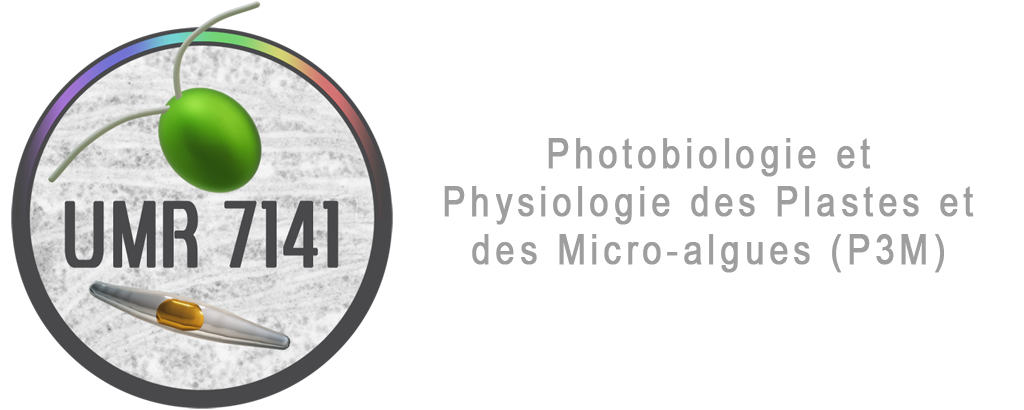Chlamydomonas reinhardtii mutant collection – Responsable : Sandrine Bujaldon
We main and keep expanding our public library of Chlamydomonas reinhardtii mutants –ChlamyStation– which currently proposes over 600 lines, stored in liquid nitrogen. This collection is available to the Chlamydomonas community, with about 50 requests per year. As our own projects reach publication, we will progressively expand the catalogue, that now also include mutants generated by CRISPR-CAS9.
Chlamydomonas reinhardtii and the MSM Singer: Tools for Genetic and Photosynthesis Research
Diatom mutant collection (Phaeodactylum tricornutum and Cyclotella cryptica) – Responsable : Soizic Cheminant-Navarro
For diatoms, we will still maintain the collection of Transcription Factor mutants (1000 strains) generated by RNAi within the framework of the French European Marine Biological Resource Centre program and we continue to generate over-expression lines and gene knock-out mutants of Phaeodactylum tricornutum and new models of diatoms (Cyclotella cryptica) made accessible to genome editing technologies (CRISPR/Cas). Mutants are generated for our research and for the community on demand.
For functional genomics, we continue to potentiate the DiatOmicBase, a genome portal to perform research on different diatom species, gathering comprehensive omic resources to ease the exploration of dispersed public datasets.
Given our recent advances in genome editing, the lab has also invested in developing Nanopore sequencing technology, indeed important to characterize mutants.
